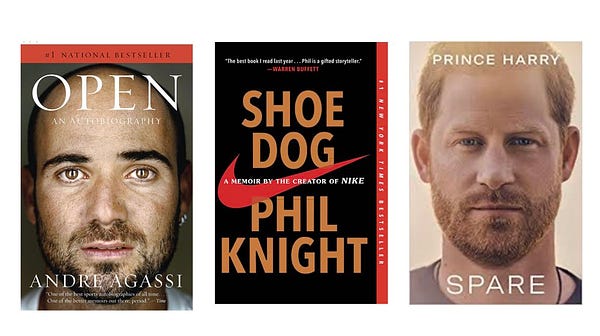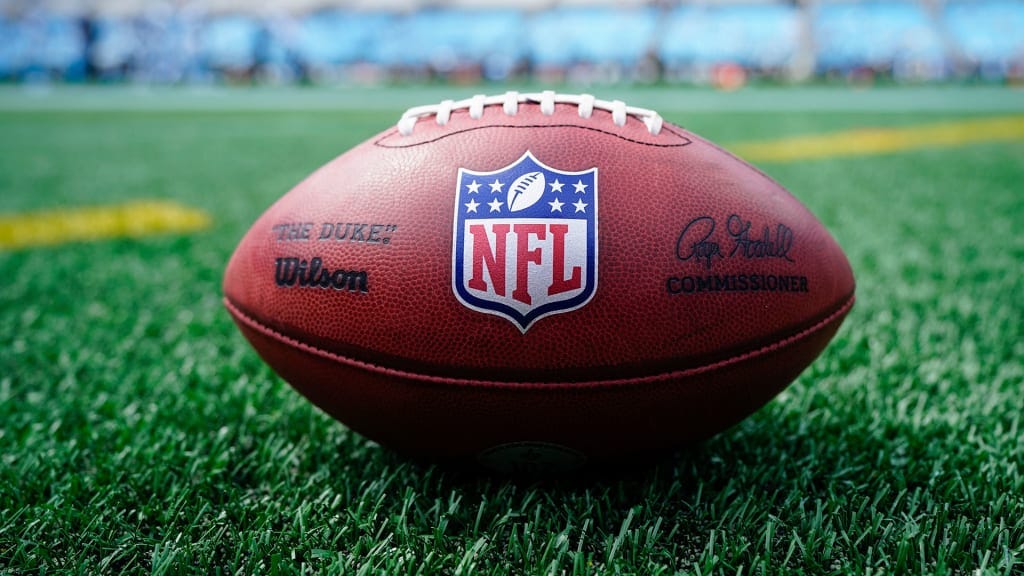The Financials Behind The NFL Playoffs
Huddle Up is a 3x weekly newsletter that breaks down the business and money behind sports. Subscribers include investors, professional athletes, team owners, and casual fans. So if you are not already a subscriber, sign up and join 78,000+ others who receive it directly in their inbox each week — it’s free. Today At A Glance:Every year, we hear about all of the glitz, glamor, and money behind football’s biggest game — The Super Bowl. But what about all the games that come before it in the Playoffs? We’ll take a look at a brief history of the NFL playoff system, the format’s recent changes, and all of the money behind the playoff games themselves. Today’s Newsletter Is Brought To You By Sorare!Sorare is one of the fastest-growing companies in sports. Backed by superstar athletes like Lionel Messi, Kylian Mbappé, Rudy Gobert, Aaron Judge, and Serena Williams, they have built blockchain technology that allows fans to collect officially licensed NFT-backed player cards. Sorare, which started in Europe with fantasy football games, recently launched exclusive licensing deals with the MLB/MLBPA and NBA/NBPA to create a custom fantasy game for each sport. The concept is simple: Sorare lets you buy, sell, trade, and earn digital trading cards of your favorite players. But rather than just looking at them as a digital collectible, you can use these trading cards to enter fantasy sports competitions for prizes & rewards. So use my link below for a free limited card — it’s free to get started! Friends, The National Football League (NFL) is the world’s most profitable sports organization. We know this, of course — they’ll soon cross $20 billion in annual revenue (+100% over the last decade), and the average franchise is now worth $4.14 billion (+18% YoY). Average Franchise Valuation By US Sports League
But one of the most unique aspects of the NFL’s business is how playoff revenue is handled — many players see a drastic drop in compensation, and some teams even lose money by making it into the playoffs. So today, we’ll dive through everything you need to know about the money and business behind the 2022-23 NFL playoffs. Enjoy! History Of The NFL PlayoffsThe NFL currently runs a 14-team playoff format — seven teams from each conference — but that’s actually a relatively new format. For example, there have been seven iterations of a playoff and championship system in the NFL’s 103-year history. Here’s a brief rundown of the NFL’s playoff history:
The NFL’s shift from 12 to 14 playoff teams has been in the works for over a decade. In fact, the NFL was very close to making the change in 2014, but they delayed the plan and eventually pushed it through as part of the new Collective Bargaining Agreement (CBA) in 2020. The reason for this change is simple: money. The NFL and NFLPA estimated the league would generate $150 million in additional revenue per season from the expanded playoff. And while it’s difficult to calculate precisely how much each game is worth, the NFL signed media deals in 2021 worth $110 billion over 11 years ($10 billion per year), and the additional playoff inventory certainly didn’t hurt. Still, the most interesting part about the NFL playoffs comes down to how the money is earned and distributed — because the players themselves don’t actually benefit all that much. Let me explain. NFL Playoff Revenue Share & BonusesThe financial structure of the NFL playoffs is unique for several reasons. First, the league gets to keep nearly all the ticket revenue from playoff games, while both home and away teams receive just a stipend to cover travel and stadium operation costs. Each stadium has different price points and capacities, but let’s use the Buffalo Bills as an example. Buffalo Business First estimates that a sold-out home Bills divisional game for 2023 would net the team $12.8 million in ticket revenue. So while it’s true that home teams get to keep their portion of concession and parking revenue, which typically amounts to anywhere between $1 million to $2 million, all of the $12.8 million in ticket revenue would go directly to the NFL. This is a drastically different approach from all other major US sports leagues. Playoff Ticket Revenue-Share (% that teams keep)
But NFL owners tend not to complain too much about this because their current centralized revenue-sharing model seems to be working just fine.
Still, that same principle doesn’t necessarily apply to players. Why? Well, player contracts only run through the regular season, so the NFL uses gate receipts in the playoffs to create a bonus pool for players that work during the postseason. But there’s just one problem: These bonus payments can end up being drastically lower than a player’s salary during the regular season. For example, players competing in this year’s NFL playoffs will receive between $41,500 to $69,000 each week leading up to the Super Bowl, provided that they keep winning games. And for someone like Patrick Mahomes, who currently receives a weekly $2.5 million salary, that represents just 1-3% of his weekly salary. Note: NFL players’ salaries are split up and paid across the 18-week season, so Mahomes’ weekly payment is $45 million/18 weeks = $2.5 million. Of course, a rising tide lifts all boats. The current CBA stipulates that NFL players receive about half of the NFL’s annual multi-billion-dollar TV deals, which certainly wouldn’t be as valuable without playoff football. The other interesting force at play here is the playoff bonus incentives many of the league’s best players have written within their contracts. These bonuses can range from just a few thousand dollars to more than $2 million, and it’s become a way for teams to reward players for a successful season. Here are a few examples: 2022 NFL Playoff Bonus Incentives
So while I don’t think anyone will protest Patrick Mahomes’ weekly salary dropping from $2.5 million to $50,000, the changing economics behind the NFL playoffs are undoubtedly interesting. The (Growing) Price Of NFL Playoff AdvertisementsWe all know that the Super Bowl is king when it comes to sports commercials. For example, last year, Coinbase spent $14 million for a color-changing QR code to bounce around on the screen for 60 seconds. It was so popular that app downloads increased by nearly 300%, and their website crashed. And this year, FanDuel is taking it to another level. The sports betting app has paid $7 million for a 30-second commercial — but rather than coming up with a traditional ad, they plan to live-stream Rob Gronkowski attempting a 25-yard field goal during the 3rd quarter. If he makes it, anyone who uses FanDuel to bet on the game will be eligible to split $10 million in free bets. My point is simple: These commercials have continued to get more creative every year, but they have also become more expensive. Cost Of A 30-Second Super Bowl Ad
And while the Super Bowl tends to get all the attention, the price for a 30-second spot during the first few rounds of the NFL playoffs has also quietly climbed. For example, 30-second ads for early playoff rounds (Wild Card and Division) cost $1 million, and ads for conference championship games cost $2 million. This is a significant increase from the ~$400,000 fee during the regular season, but still 70 to 80 percent cheaper than the $7 million fee during the Super Bowl. But how can the NFL charge so much? Well, even though the Super Bowl is the king of all American TV programs, the playoffs generate tens of millions of viewers, making them one of the most valuable TV products.
For context, the 2021 NFL regular season averaged 17.1 million viewers per game. If you enjoyed this breakdown, please share it with your friends. My team and I work hard to create quality content, and every new subscriber helps. Thanks! I hope everyone has a great weekend. Monday is Martin Luther King Jr. Day in the United States, so we’ll be back on Wednesday. Enjoy the playoffs! Enjoy this content? Subscribe to my YouTube channel. Your feedback helps me improve Huddle Up. How did you like today’s post? Loved | Great | Good | Meh | Bad Extra Credit: The Most Popular Writer You Have Never Heard ofWe have been bombarded lately with content surrounding the release of Prince Harry’s new book Spare. I couldn’t care less about the book itself, but it reportedly sold 1.43 million copies in the first day — a non-fiction record — and I found this information from my friend Trung super interesting (Open & Shoe Dog are both great). 
Trung Phan @TrungTPhan
Prince Harry’s “Spare” was ghostwritten by J.R. Moehringer, who is the world’s best-paid ghostwriter. He reportedly got paid $1m for “Spare” and also ghost-wrote two other bangers: Andre Agassi’s “Open” and Phil Knight’s “Show Dog”.
 9:22 PM ∙ Jan 12, 2023
2,894Likes262Retweets
Huddle Up is a 3x weekly newsletter that breaks down the business and money behind sports. Subscribers include investors, professional athletes, team owners, and casual fans. So if you are not already a subscriber, sign up and join 78,000+ others who receive it directly in their inbox each week — it’s free.
Read Huddle Up in the app
Listen to posts, join subscriber chats, and never miss an update from Joseph Pompliano.
© 2023 |


